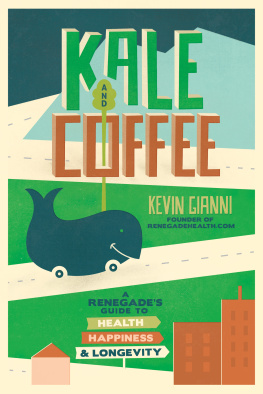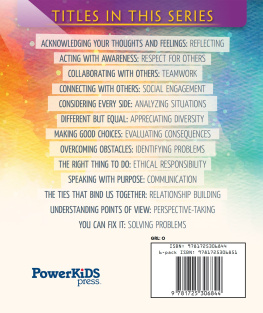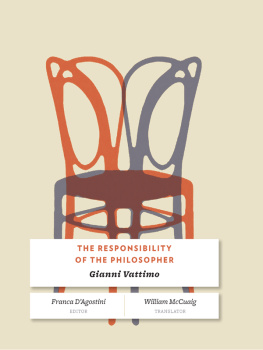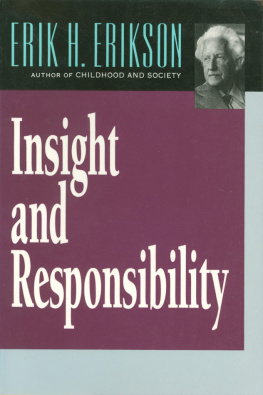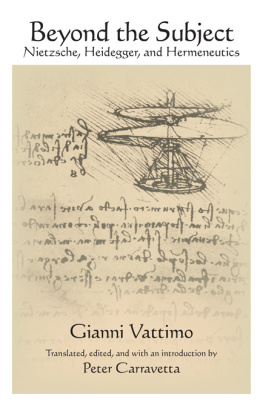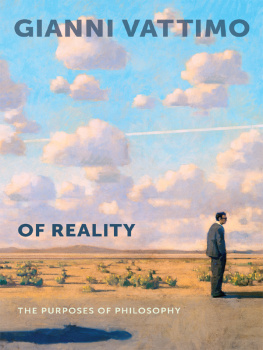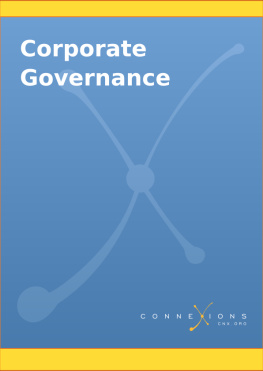Gianni - Responsibility and Freedom: The Ethical Realm of RRI
Here you can read online Gianni - Responsibility and Freedom: The Ethical Realm of RRI full text of the book (entire story) in english for free. Download pdf and epub, get meaning, cover and reviews about this ebook. year: 2016, publisher: John Wiley & Sons, Incorporated, genre: Romance novel. Description of the work, (preface) as well as reviews are available. Best literature library LitArk.com created for fans of good reading and offers a wide selection of genres:
Romance novel
Science fiction
Adventure
Detective
Science
History
Home and family
Prose
Art
Politics
Computer
Non-fiction
Religion
Business
Children
Humor
Choose a favorite category and find really read worthwhile books. Enjoy immersion in the world of imagination, feel the emotions of the characters or learn something new for yourself, make an fascinating discovery.

- Book:Responsibility and Freedom: The Ethical Realm of RRI
- Author:
- Publisher:John Wiley & Sons, Incorporated
- Genre:
- Year:2016
- Rating:5 / 5
- Favourites:Add to favourites
- Your mark:
- 100
- 1
- 2
- 3
- 4
- 5
Responsibility and Freedom: The Ethical Realm of RRI: summary, description and annotation
We offer to read an annotation, description, summary or preface (depends on what the author of the book "Responsibility and Freedom: The Ethical Realm of RRI" wrote himself). If you haven't found the necessary information about the book — write in the comments, we will try to find it.
Gianni: author's other books
Who wrote Responsibility and Freedom: The Ethical Realm of RRI? Find out the surname, the name of the author of the book and a list of all author's works by series.
Responsibility and Freedom: The Ethical Realm of RRI — read online for free the complete book (whole text) full work
Below is the text of the book, divided by pages. System saving the place of the last page read, allows you to conveniently read the book "Responsibility and Freedom: The Ethical Realm of RRI" online for free, without having to search again every time where you left off. Put a bookmark, and you can go to the page where you finished reading at any time.
Font size:
Interval:
Bookmark:
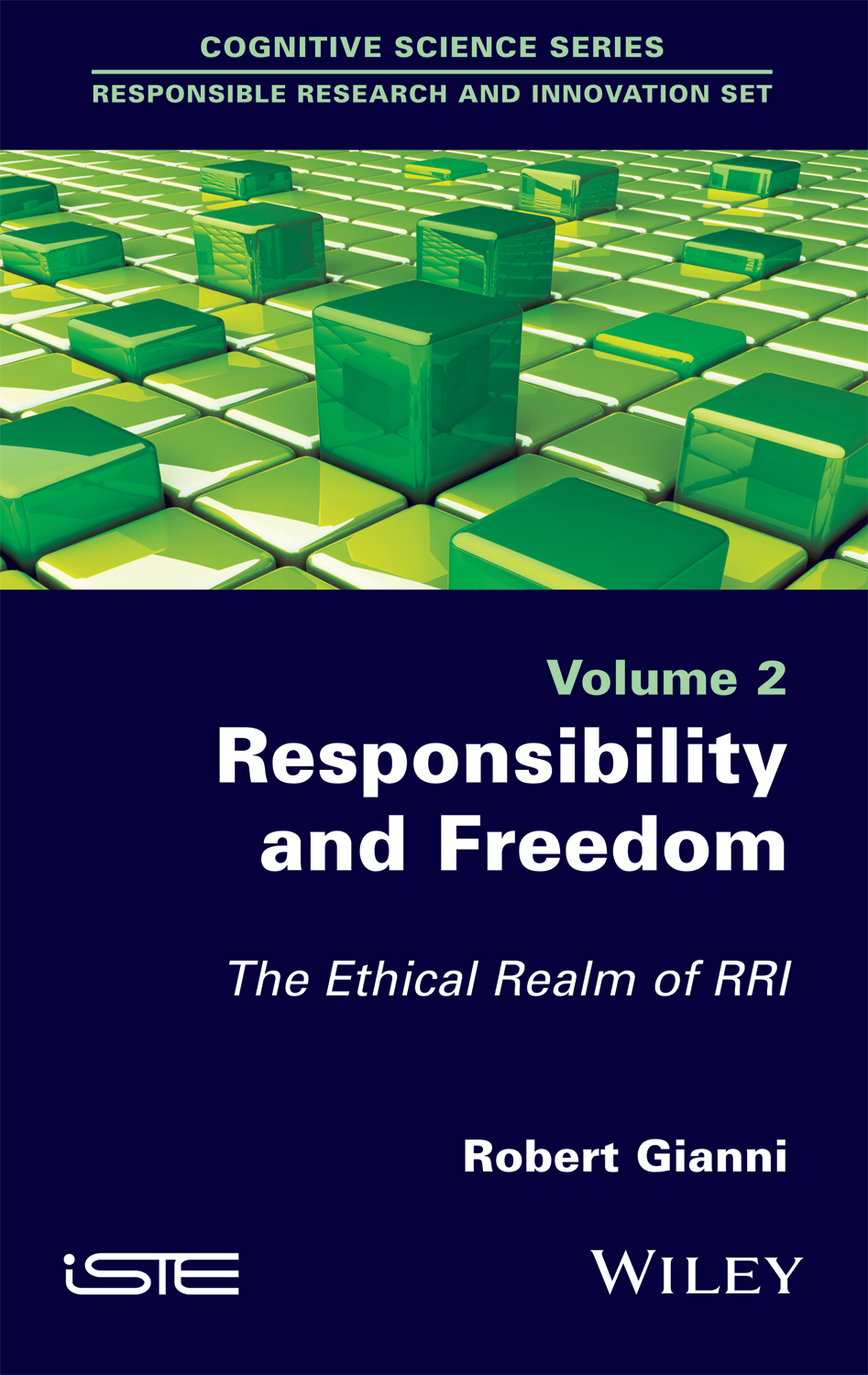
I dedicate this book to the woman who taught me the hardness but also the beauty of responsibility and freedom.
My greatest love.
To Carole.
Volume 2
Robert Gianni
Responsible Research and Innovation Set
coordinated by
Bernard Reber

First published 2016 in Great Britain and the United States by ISTE Ltd and John Wiley & Sons, Inc.
Apart from any fair dealing for the purposes of research or private study, or criticism or review, as permitted under the Copyright, Designs and Patents Act 1988, this publication may only be reproduced, stored or transmitted, in any form or by any means, with the prior permission in writing of the publishers, or in the case of reprographic reproduction in accordance with the terms and licenses issued by the CLA. Enquiries concerning reproduction outside these terms should be sent to the publishers at the undermentioned address:
ISTE Ltd
27-37 St Georges Road
London SW19 4EU
UK
www.iste.co.uk
John Wiley & Sons, Inc.
111 River Street
Hoboken, NJ 07030
USA
www.wiley.com
ISTE Ltd 2016
The rights of Robert Gianni to be identified as the author of this work have been asserted by him in accordance with the Copyright, Designs and Patents Act 1988.
Library of Congress Control Number: 2015959668
British Library Cataloguing-in-Publication Data
A CIP record for this book is available from the British Library
ISBN 978-1-84821-897-0
This book is the outcome of work that has developed along two directors, which cannot always be clearly distinguished.
On the one hand, my understanding of society comes from my studies at the Frankfurt School concerning a Hegelian perspective on social dynamics, and, on the other hand, from the daily work of comprehension and development of approaches that can help in solving the controversy between science and society. The result is thus contained in a text where many have contributed, although often implicitly. Consequently, given the great number of contributors forming this text, my appreciation will surely be incomplete in terms of names.
Timothy Shrubsall has played a key role in the semantic and syntactic development of the text given the objective difficulty in expressing the nuances embedded in several terms and concepts. All mistakes or strange expressions are due to my stubbornness in trying to keep certain terms and expressions.
From a conceptual point of view, I am grateful to Axel Honneth, Roberto Finelli, Giacomo Marramao, Ren Von Schomberg, Xavier Pavie, Vincent Blok, Ibo Van de Poel, Armin Grunwald, Klaus Jacob and Jeroen van Den Hoven.
A special thank you in this sense goes to Bernard Reber who helped me both from a conceptual and a human point of view. Although I am sure that he will not agree with all the interpretations provided in this text, most of those are the outcomes of discussions and suggestions to which he has always generously contributed.
John Pearson and Philippe Goujon have contributed in different ways enabling me not to lose sight of the importance of publishing this work and taught me much more than they can imagine.
Veikko Ikonen, Jrmy Grosman and Alain Loute have also been great sources of inspiration and discussion for the understanding of science and society.
A special thanks goes to Laura Oger and Christelle Saout Babette Di Guardia for their presence and constant help. I cannot forget the institutional support that I have received from Naji Habra, Laurent Schumacher, Laurence Hennuy, Claire Lobet, Isabelle Daelman and Benjamin Lurquin.
I would like to also thank the European Commission via Karen Fabbri, Giuseppe Borsalino and Isidoros Karatzas with whom I share a special passion for ethics.
Nicolas Gonne has managed to alleviate the difficulties and acerbities that such work entails and showed me new crossroads between economy and society.
Among the friends who were eager to listen and help me, I cannot forget Francesco Domenici, Takis Tzevelecos, Alexandre Girard and Olivier Hubert.
Finally, this book would not have been possible without the care, cultural help and loving support of my companion Christina.
This second volume of the Responsible Innovation and Research (RRI) set has been written by a philosopher who is an expert in the emergent field of research around this notion. He is involved in different European projects like, for instance, Governance for Responsible Research and Innovation (GREAT). This book does much more than just present RRI practices or how to make a framework operational. In addition to these important aspects, Robert Gianni also proposes here an analysis of the philosophical roots embedded in the notion. This is a crucial point, which will be addressed, although through different perspectives, throughout the set.
Gianni offers a very structured and relevant understanding of RRI in order to develop an efficient and concretely ethical conception. According to his perspective, freedom is the main condition of possibility at the basis of any responsibility. This should be obvious, but most of the RRI discourses or research take this point either as guaranteed, or tend to stick to a legal framework. Indeed, Robert Gianni believes that the reason for which science and innovation have undergone a general mistrust is because they have been sometimes perceived as a threat to ones freedom. Thus, according to the author, the different protests and the reasons supporting them referred, either explicitly or implicitly, to the necessity of guaranteeing freedom of individuals. He takes as an anchor point for the regulation of the science and society relationship the fact that every adoptable measure should be based according to the guarantee or development of freedom.
By the adoption of several examples, he emphasizes that the use of persuasive European Union strategies cannot be sufficient in terms of legitimacy and efficacy, as a measure to implement research and innovation. If the EU needs to increase its efficacy in order to develop our economies, it must also guarantee the legitimacy in the way these domains are steered in respect to society, its needs, values and norms. For this purpose, the objective of the EU should and is, according to Gianni, exactly the one of covering the distance between science and society, caused by a qualitative growth of technologies and by the adoption of processes that had for a long time excluded society and its request of freedom. What he emphasizes with respect to the strategy of European research and innovation can be true for every country with a strong development of research and innovation.
Gianni offers an original interpretation of the EC guidelines and a critical reading of RRI made by the scientific community. By doing so, he considers both sides, the practical application of the European Commissions RRI guidelines, i.e. the six keys (participation of stakeholders, open science, science literacy, gender, governance and ethics), and some of the most important theoretical proposals regarding RRI research on the dimensions of responsibility. RRI can be achieved if the six key actions are adopted as an action list. According to him, in fact, these keys proposed by the European Commission should not be seen as static but rather as performative and dynamic. They are key actions, or manners of embedding research and innovation, rather than dimensions. In this way, the distance between RRI conceptions and the keys will be covered and the latter will represent the operational tools to achieve the former.
Next pageFont size:
Interval:
Bookmark:
Similar books «Responsibility and Freedom: The Ethical Realm of RRI»
Look at similar books to Responsibility and Freedom: The Ethical Realm of RRI. We have selected literature similar in name and meaning in the hope of providing readers with more options to find new, interesting, not yet read works.
Discussion, reviews of the book Responsibility and Freedom: The Ethical Realm of RRI and just readers' own opinions. Leave your comments, write what you think about the work, its meaning or the main characters. Specify what exactly you liked and what you didn't like, and why you think so.

